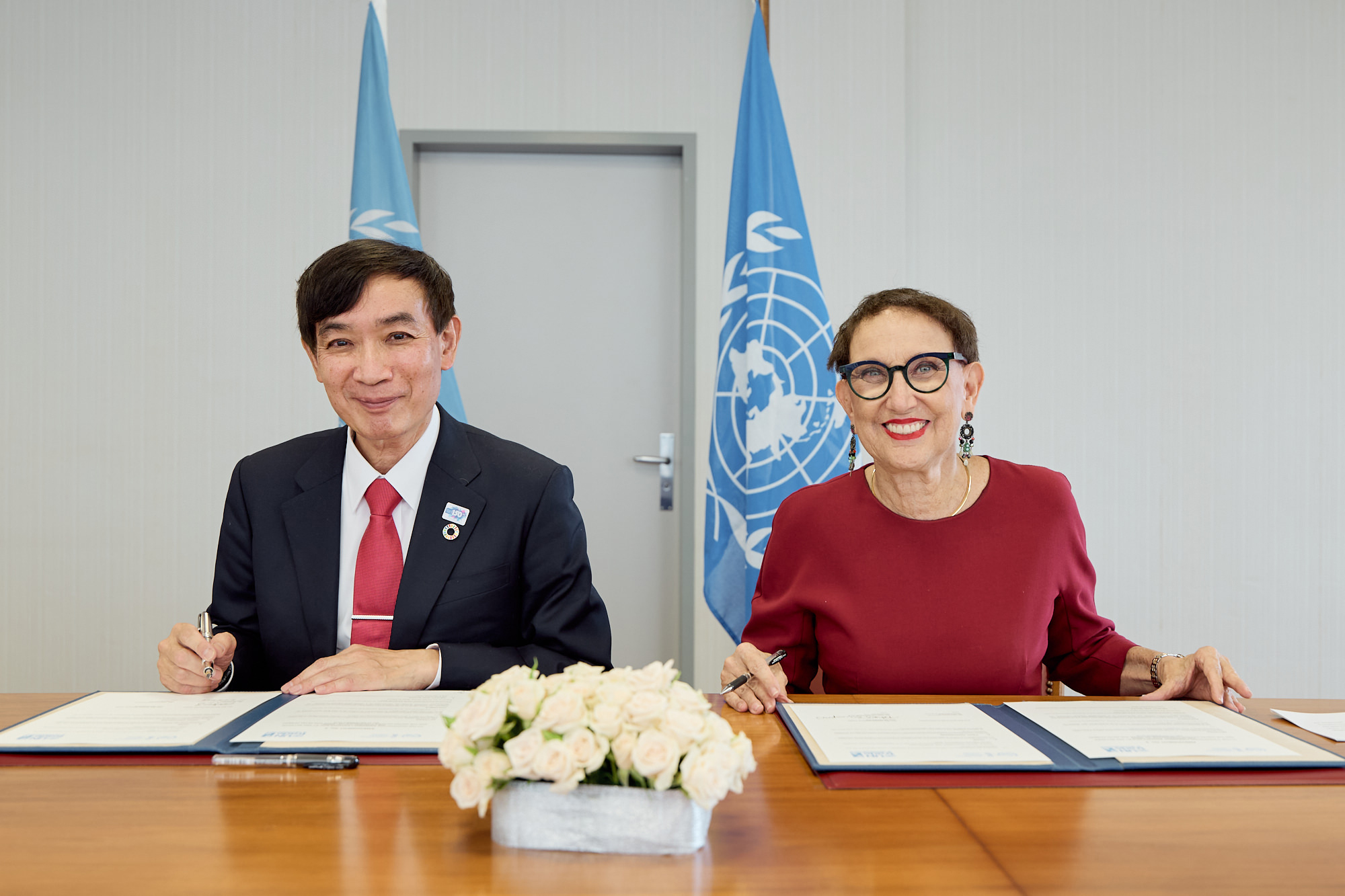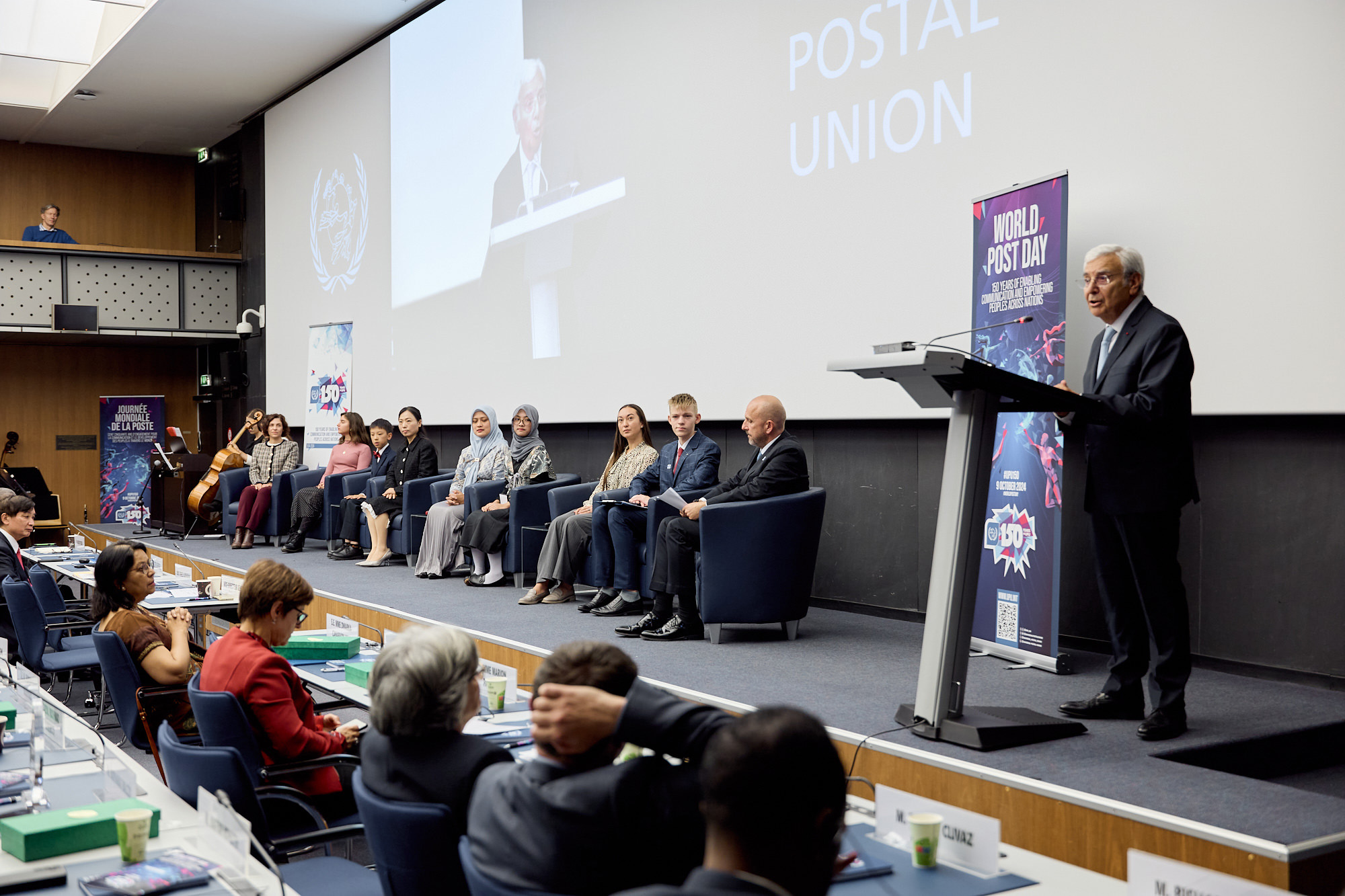Overview
Enhancing trade facilitation and e-commerce integration
The UPU and UN Trade and Development (UNCTAD) work together to promote global trade facilitation and support the digital transformation of trade infrastructure, particularly in the developing and least developed countries. Established in 1964 as a subsidiary body of the UN General Assembly, UNCTAD plays a key role in fostering sustainable and inclusive development by addressing trade, investment, technology and development issues.
Through initiatives like the Automated System for Customs Data (ASYCUDA) and the eTrade for All network, UNCTAD provides crucial support to governments seeking to modernize trade practices and foster economic growth. Its flagship reports, such as the Trade and Development Report and World Investment Report, offer authoritative policy guidance, aligning closely with the UN’s Sustainable Development Goals.
Strengthening ties at the UPU’s 150th anniversary
In celebration of the UPU’s 150th anniversary, UNCTAD Secretary-General Ms Rebeca Grynspan joined the UPU in Berne, marking the importance of this enduring partnership.
During her visit, Ms Grynspan and Mr Masahiko Metoki, UPU Director General signed a renewed memorandum of understanding (MoU) to strengthen cooperation between the two organizations. The original MoU, signed in 2015, was updated to reflect evolving priorities, further deepening collaboration on trade facilitation and digital transformation.

The renewed MoU between the UPU and UNCTAD underscores their commitment to modernizing trade infrastructure, enhancing e-commerce capabilities, and promoting economic inclusion. By leveraging their shared expertise, the two organizations continue to support countries in navigating the complexities of digital trade and fostering sustainable economic growth.
More about the event in photos, click here.
Key areas of collaboration
1. ASYCUDA–CDS interface: A cornerstone of the UPU–UNCTAD partnership is the integration of UNCTAD's ASYCUDA and the UPU's Customs Declaration System (CDS). This interface facilitates seamless electronic exchange of customs data, enabling faster customs clearance, improved risk assessment, and accurate cross-border declarations. Additionally, the partnership focuses on supporting member countries in implementing this Post–Customs interface for those using UPU ASYCUDA and UNCTAD CDS. Leveraging WCO–UPU joint messaging standards, the project enhances postal and customs cooperation globally. In 2024, the ASYCUDA–CDS interface received the TradePost Innovation Award for advancing digital customs clearance in Cambodia.
2. eTrade for All: As an active member of UNCTAD's eTrade for All network, the UPU contributes to empowering developing countries to leverage e-commerce for economic growth. The initiative connects governments, businesses and international organizations to provide policy guidance, technological solutions and capacity-building support.
3. Participation in key UNCTAD initiatives:
- eTrade readiness assessments: The UPU has supported eTrade readiness evaluations in countries such as Mauritania, Algeria, Timor-Leste, Tunisia, Malawi, Kenya, Zimbabwe and Peru, aiding these nations in identifying gaps and opportunities for digital trade.
- UNCTAD Global Supply Chain Forum (2024): During this Forum, held in Barbados, the UPU participated in discussions on inclusivity and national trade facilitation committees. The UPU presented its TradePost project, which promotes trade inclusion for underserved communities in remote areas. And the UPU joined customs authorities and the WCO on a panel dedicated to digital solutions for supply chains, presenting lessons learned from ASYCUDA–CDS implementations to help small island developing states (SIDS) progress towards sustainable, intelligent and connected single-window environments.
- e-week 2023: During UNCTAD’s e-week, the UPU hosted its inaugural TradePost Forum and Awards and organized a session on digital infrastructure. Plans are underway for further involvement in the next e-week in 2026.
4. UNCTAD working group on measuring e-commerce and the digital economy: The UPU actively contributes to the UNCTAD working group on measuring e-commerce and the digital economy, aiming to enhance the quality and coverage of cross-border e-commerce data. This collaboration supports efforts to better understand digital trade dynamics and inform policymaking for sustainable e-commerce growth.
5. World Summit on the Information Society (WSIS) action line on e-business: The UPU, UNCTAD and the International Trade Centre co-facilitate the WSIS action line on e-business. This collaboration drives efforts to integrate digital solutions into global trade, particularly in developing economies.
More information
- To listen to the UPU Voice Mail podcast with Ms Rebeca Grynspan, Secretary-General of UNCTAD (Episode 29: Leading the future of fair and inclusive trade), see here.
- More about UNCTAD's work to empower small businesses within an inclusive global digital economy, see here.
- More on trade facilitation and the latest TradePost Forum, see here.
Related news

2024 TradePost Awards: Recognizing Postal Services as Drivers of Trade Inclusion

The UPU at 150: A Legacy of Global Cooperation and Communication
